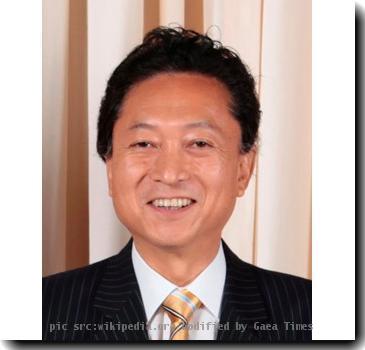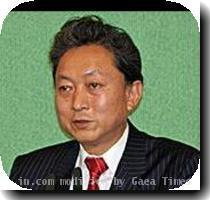Japan’s new leader, stressing grass-roots past, names Cabinet, gears up for polls
By Eric Talmadge, APTuesday, June 8, 2010
Japan’s new ‘grass-roots’ PM names Cabinet
TOKYO — Japan’s new prime minister named his Cabinet and vowed to tackle the country’s burgeoning debt Tuesday, but analysts said with elections looming he will be hard pressed to hold his ground let alone carry out sweeping reforms.
Naoto Kan and the Democratic Party of Japan he now heads are hoping his image as a grass-roots reformer who understands the needs of average Japanese will restore public trust and shore up the party ahead of next month’s elections for the upper house of parliament and amid souring relations with Washington over a U.S. military base.
Kan — Japan’s sixth prime minister in four years — was sworn in by Emperor Akihito after announcing he would retain most of Yukio Hatoyama’s Cabinet. Hatoyama abruptly quit last week after he failed to keep a campaign promise to move the sprawling Marine Corps Air Station Futenma off the southern island of Okinawa.
But Kan moved quickly to distance himself from Hatoyama — a political blueblood who was seen as indecisive and aloof and resigned after only eight months in office — by stressing his roots as a civil activist from an average family.
“I am the son of a salary man,” said the soft-spoken but often fiery 63-year-old, who steps up to the top post after a stint as Hatoyama’s finance minister. “That is the true message of democracy — that, regardless of background, a young person with desire and effort can make it in the political world.”
The Democratic Party badly needs a post-Hatoyama boost.
After toppling the conservatives who governed Japan for most of the post World War II era last September, Hatoyama squandered support ratings of over 70 percent, plunging below 20 percent when he and his scandal-tainted No. 2, Ichiro Ozawa, stepped down.
The initial response to the power-change has been positive.
A poll published Tuesday in the national Sankei newspaper showed 57 percent support for the government, with support for the party at 31 percent, versus 18 percent from before Hatoyama stepped down. The survey did not give a margin of error, but its sampling size would normally have a margin of about 5 percentage points.
“Kan quickly won a bump for the Democratic Party of Japan in the polls just by not being Hatoyama,” said Michael J. Green, a senior advisor at the Center for Strategic and International Studies and an assistant professor at Georgetown University. “He may gain further in the polls if he continues providing an anti-Ichiro Ozawa flavor.”
But Green noted that Kan inherits many problems — especially the base issue.
“If Kan had a magic wand to make one issue go away, he would probably choose Futenma,” Green said.
Kan vowed Tuesday to honor a pact with the U.S. to keep the base on Okinawa, but he also said Okinawa’s burden must be lightened. Okinawa hosts more than half the 47,000 U.S. troops based in Japan under a decades-old security arrangement.
He offered no new ideas on how to balance Washington’s desire to keep the Okinawa presence with the fierce local opposition to the plan. The issue could come to a head again in November, when elections for Okinawa’s governor are held.
“The people of Okinawa have voiced their disapproval of the government’s plan, and these voices must be heard,” said Mizuho Fukushima, the head of a small party that left Hatoyama’s ruling coalition over the base dispute. “There could be a great deal of animosity toward the United States because of this issue.”
Still, Kan said the rift over the base does not reflect a shift away from Washington in Tokyo’s diplomatic stance. He said he hopes to meet with Obama during a summit of the G8 industrialized nations later this month in Canada.
The summit will likely be Kan’s debut on the international stage as prime minister.
To shift the focus away from Futenma, analysts say, Kan is likely to try to stress economic issues and reviving Japan’s fiscal policies to bolster growth while reigning in the swelling national debt — which Kan says will be his most-pressing challenge.
Heading up the economic effort in the new Cabinet is Kan’s former Finance Ministry lieutenant Yoshihiko Noda, a fiscal hawk who favors financial discipline and is against heavy public spending or more borrowing.
Japan has the largest public debt among industrialized nations, at 218.6 percent of its gross domestic product in 2009, according to the International Monetary Fund.
Kan said he will also consider raising taxes, an issue he said previous governments have been too timid to face.
Reforming the bureaucracy, another hot-button issue, will be led by Renho, a former television announcer turned parliamentarian who gained widespread popularity in the media as she grilled bureaucrats in public budget debates last year.
A rising star among the Democrats, Renho, 42, is the youngest member of the Cabinet, becoming minister of administrative reforms. Her father is Taiwanese and she goes by one name.
“She’s pretty impressive. She was sharp as a knife when she was going at her questioning,” said Sheila Smith, a senior fellow at the Washington-based Council on Foreign Affairs.
____
Associated Press writers Mari Yamaguchi, Malcolm Foster and Shino Yuasa contributed to this report.
Tags: Asia, East Asia, Japan, North America, Tokyo, United States, Yukio Hatoyama

